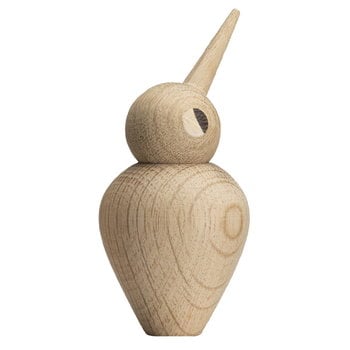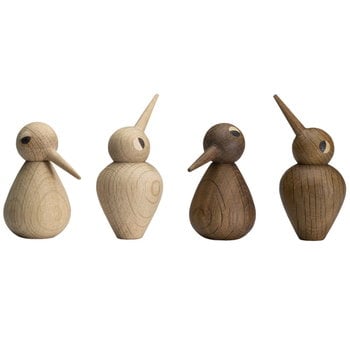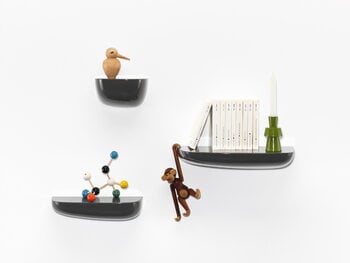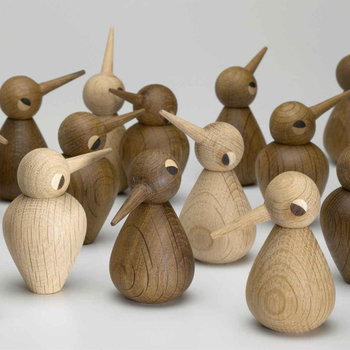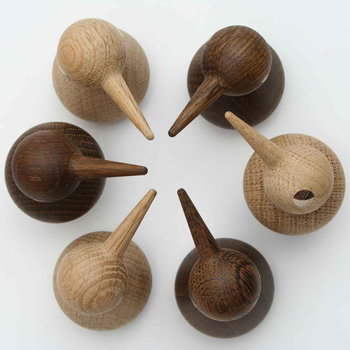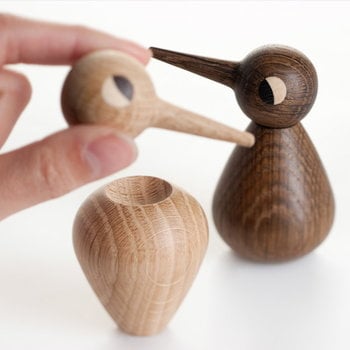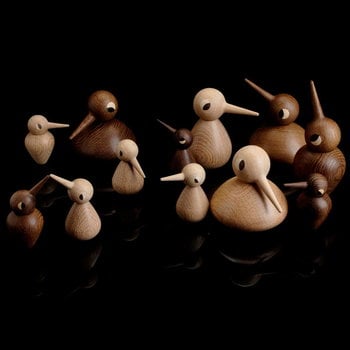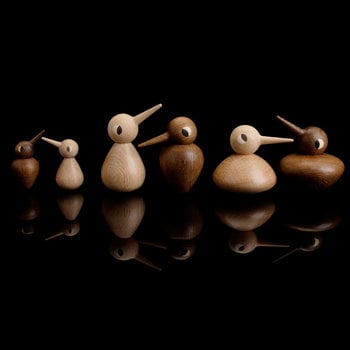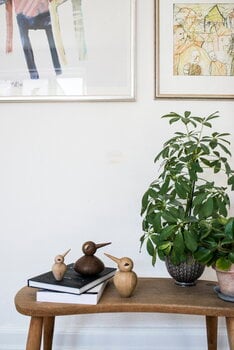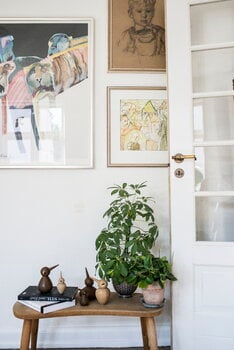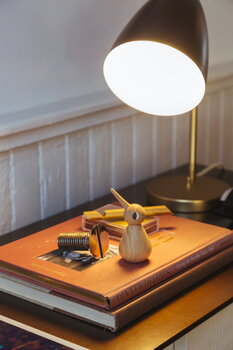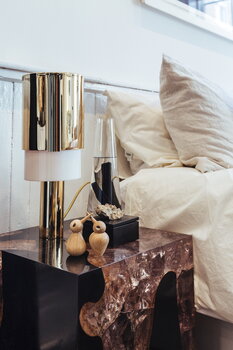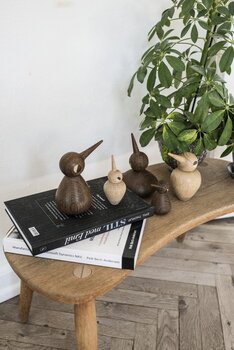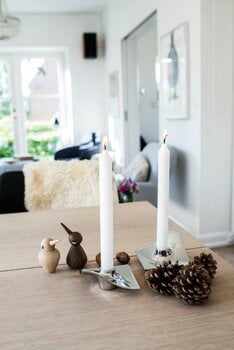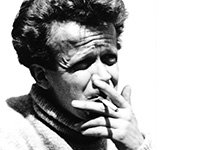Architectmade's Bird charms with its countless expressions. The wooden bird has two separate parts: the head and the body, which can be turned either way round. The head can be tilted and rotated in countless different ways. Happy or sad, curious or playful – you get to choose the mood. The Bird is a truly charming design object that brings joy for people of all ages.
Kristian Vedel designed the Bird in 1959 and it soon became a popular design object. The wooden bird is handmade in Denmark and produced from the highest quality Danish oak wood.
